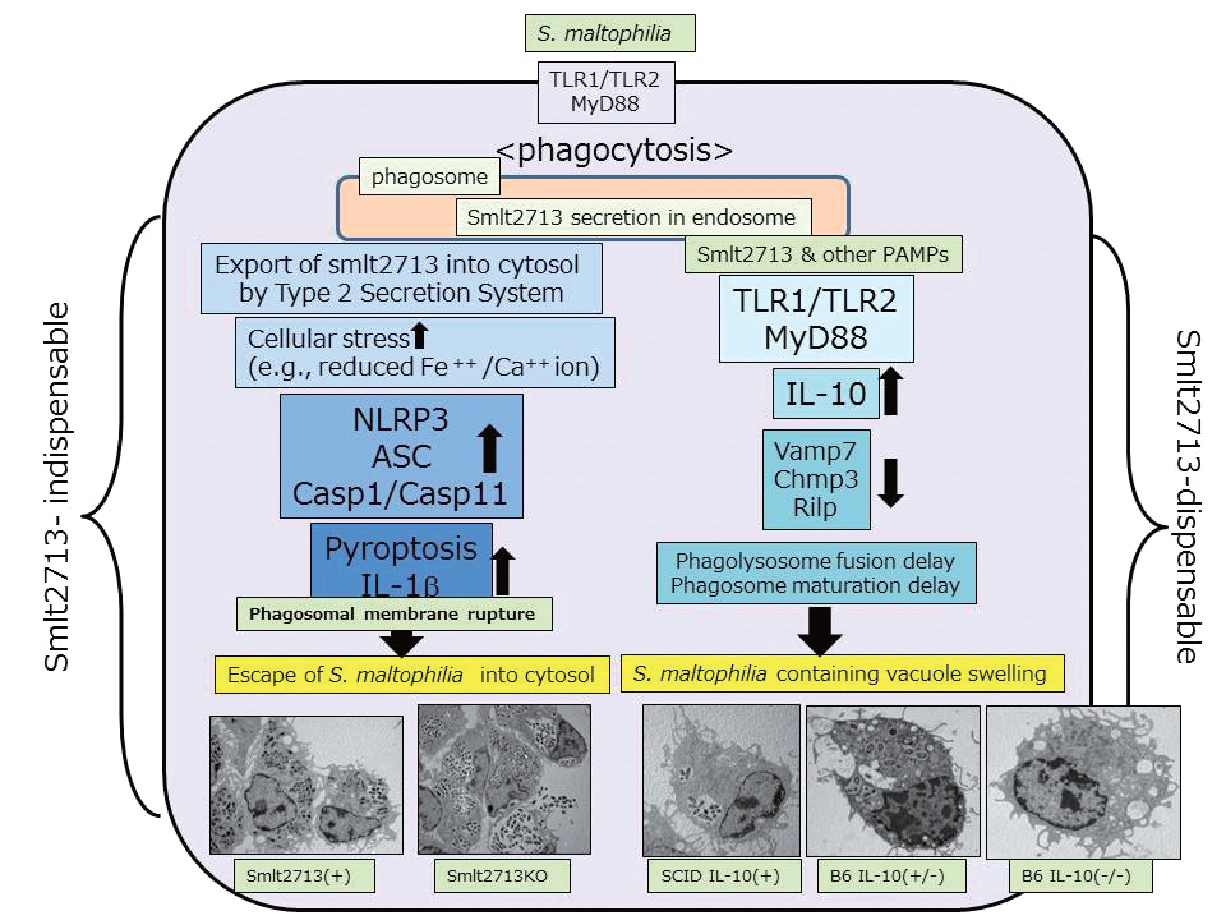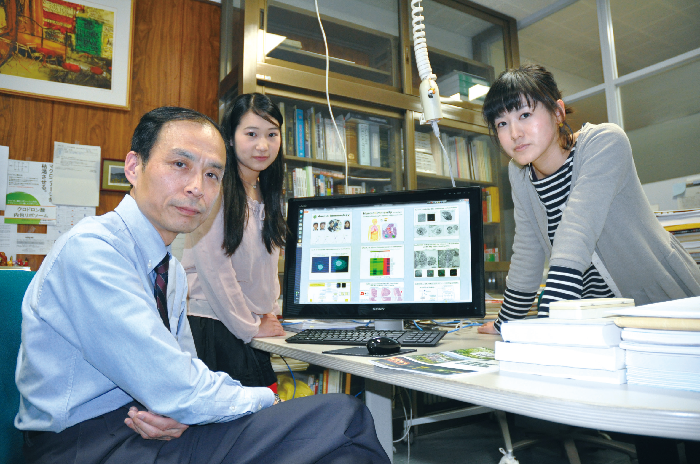【Major Papers of the Laboratory】
・Persistent colonization of non-lymphoid tissue-resident macrophages by Stenotrophomonas maltophilia, INTERNATIONAL IMMUNOLOGY, 32(2), 133-141, 2020
・New horizon of mucosal immunity and vaccines, CURRENT OPINION IN IMMUNOLOGY, 21(3), 352-358, 2009
・Intraepithelial lymphocytes: their shared and divergent immunological behaviors in the small and large intestine, IMMUNOLOGICAL REVIEWS, 215, 136-153, 2007
【Education】
“Immunity” is defined as our body’s resistance against infectious and inflammatory diseases. The collection of molecules and cells/tissues that participate in the “host defense” is “the immune system”, and the coordinated reaction of these molecules/cells against not only harmful but also innocuous foreign materials is “the immune response”. We lecture as well as perform laboratory work concerning the immune system and response.
We show the importance of immunology for the progress of introducing examples of translational research from bench to bedside (e.g., immune therapy for tumors using newly discovered immunity-related rheostat molecules).
The goal of our undergraduate education at dental school is:
1. Increased participation learning of medically important immunology.
2. Increased basic knowledge of the immunological issues in health and disease.
3. Comprehension to develop diagnosis in medically crucial situations.
【Research】
We are determining (1) how a member of plant rhizosphere microbiota (Stenotrophomonas maltophilia) creates and regulates a physiologic
inflammation in gastrointestinal tissues; (2) how environmental bacteria cohabit in the intestinal mucosa, especially with in tissue resident macrophages; and (3) How the rhizosphere bacteria regulate / prevent pathologic inflammation in the gut. This work is supported by grant from the core research for evolutional science and technology (CREST) program of the Japan Science and Technology Agency.
【Featured publications】
1. Persistent colonization of non-lymphoid tissue-resident macrophages by Stenotrophomonas maltophilia. Takahashi I, Hosomi K, Nagatake T, Tobou H, Yamamoto D, Hayashi I, Kurashima Y, Sato S, Shibata N, Goto Y, Maruyama F, Nakagawa I, Kuwae A, Abe A, Kunisawa J, Kiyono H. Int. Immunol. (2020) 32:133-141.
2. Mucosal regulatory cells in the gastrointestinal tract and periodontium. Takahashi I, Fujihashi K, Kiyono H. Periodontol. 2000. (2010) 54: 247-56.
3. New horizon of mucosal immunity and vaccines. Takahashi I, Nochi T, Yuki Y, Kiyono H. Curr. Opin. Immunol. (2009) 21: 352-8.
4. Intraepithelial lymphocytes: their shared and divergent immunological behaviors in the small and large intestine. Kunisawa J, Takahashi I, Kiyono H. Immunol. Rev. (2007) 215: 136-53.
5. Colitis in mice lacking the common cytokine receptor g-chain is mediated by IL-6-producing CD4+ T cells. Kai Y, Takahashi I, Ishikawa H, Hiroi T, Mizushima T, Matsuda C, Kishi D, Hamada H, Tamagawa H, Ito T, Yoshizaki K, Kishimoto T, Matsuda H, Kiyono H. Gastroenterology (2005) 128: 922-34.
6. Clonal expansion of double-positive intraepithelial lymphocytes by MHC class I-related chain A expressed in mouse small intestinal epithelium. Park EJ, Takahashi I, Ikeda J, Kawahara K, Okamoto T, Kweon MN, Fukuyama S, Groh V, Spies T, Obata Y, Miyazaki J, Kiyono H. J. Immunol. (2003) 171: 4131-9.

 Home
Home



